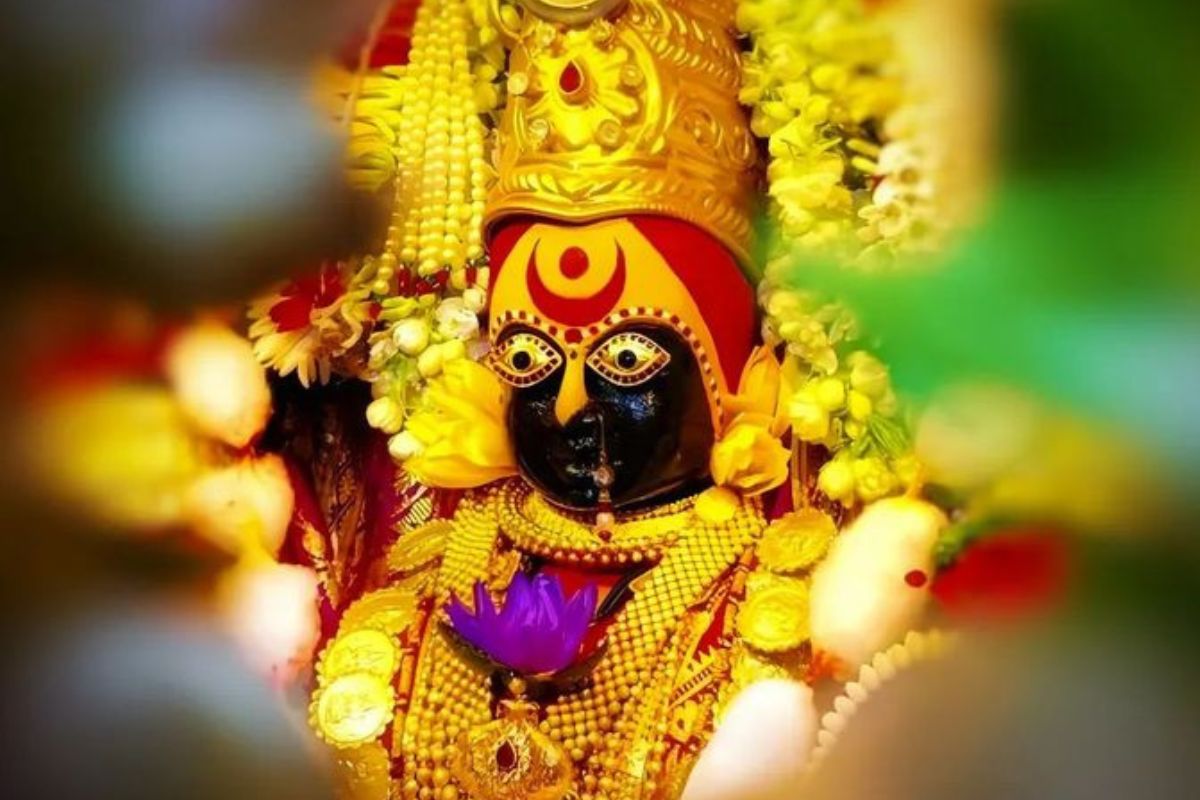The goddess Bhavani stands as a powerful and revered figure, often associated with strength, grace, and protection. One of the most profound expressions of devotion to Goddess Bhavani is through the Bhavanyashtakam, an ancient hymn that is deeply ingrained in the hearts of devotees who seek her blessings
What is Bhavanyashtakam?
Bhavanyashtakam is a Sanskrit hymn comprising eight verses (the number “Ashtakam” refers to the number 8) dedicated to Goddess Bhavani, a manifestation of Parvati, the consort of Lord Shiva. The hymn is believed to have been written by Adi Shankaracharya, the great philosopher and theologian of the 8th century. His works and hymns, many of which focus on invoking deities, exploring the nature of the self, and elucidating profound spiritual teachings, have had a lasting impact on Hindu spiritual practice.
The Bhavanyashtakam is a prayer that highlights the various attributes of Goddess Bhavani—her fierce protection, her nurturing love, and her ability to remove obstacles and grant peace and prosperity to her devotees. Each of the eight verses praises her in different forms, seeking her divine blessings for physical, emotional, and spiritual well-being.
The overall essence of the Bhavanyashtakam reflects the devotee’s recognition of their own weaknesses, flaws, and ignorance, and their complete surrender to the divine grace of Goddess Bhavani. The devotee admits that they lack knowledge of various spiritual practices, such as meditation, charity, rituals, and devotion. They also acknowledge their faults, including engaging in sinful actions, associating with bad company, and being bound by desires and ignorance. The devotee feels lost, helpless, and caught in the sufferings of the material world, such as poverty, illness, old age, and emotional distress.
Despite these imperfections and limitations, the devotee declares that they have no other refuge except the Goddess. They surrender their ego, attachments, and reliance on worldly powers, recognizing that Goddess Bhavani alone is their true savior and protector. The prayer is a cry for help, seeking protection and divine grace from the challenges of life, both physical and spiritual. It acknowledges that the devotee is unable to navigate the struggles of existence on their own, and thus turns to the Goddess for mercy, guidance, and salvation.
Throughout the prayer, the devotee expresses a sense of vulnerability and dependence on Goddess Bhavani. The hymn conveys the idea that divine grace is the only means of salvation and that no amount of worldly knowledge, material wealth, or external support can provide true peace, liberation, or protection. The devotee seeks refuge in the Goddess in every circumstance—whether in moments of sorrow, conflict, or fear—and humbly calls upon her as the sole source of refuge and the ultimate source of strength.
The Bhavanyashtakam beautifully encapsulates the core principle of surrender in spiritual practice, where one humbly acknowledges their limitations and seeks divine intervention. It emphasizes that true spiritual progress comes not from one’s own effort alone but through the grace and mercy of the divine, especially when one recognizes their own dependence on that grace. The hymn serves as a profound reminder that no matter the condition of one’s life—whether they are lost in ignorance, overwhelmed by suffering, or facing despair—turning to the divine, especially Goddess Bhavani, is the ultimate path to peace, protection, and liberation
Conclusion
The Bhavanyashtakam is not just a prayer; it is a profound expression of devotion, surrender, and humility. Through its verses, the devotee recognizes their limitations, flaws, and struggles in the material world and seeks refuge in the grace of Goddess Bhavani. The hymn emphasizes that no matter how lost or helpless one feels, divine grace is the only true path to salvation, protection, and peace.
In a world filled with challenges, uncertainties, and distractions, the Bhavanyashtakam serves as a timeless reminder that surrendering to the divine, with complete faith and devotion, leads to liberation. It teaches us that even in our moments of vulnerability, we can find solace by turning to the divine for guidance and strength. Goddess Bhavani, in all her aspects, stands as the ultimate protector and refuge for those who seek her mercy.
Whether recited in times of hardship or as part of regular spiritual practice, the Bhavanyashtakam encourages a deeper connection with the divine and offers a sense of peace that transcends the complexities of life. It is a beautiful reflection of the power of surrender and the boundless compassion of the goddess, inviting us to trust in her grace and protection at all times.
